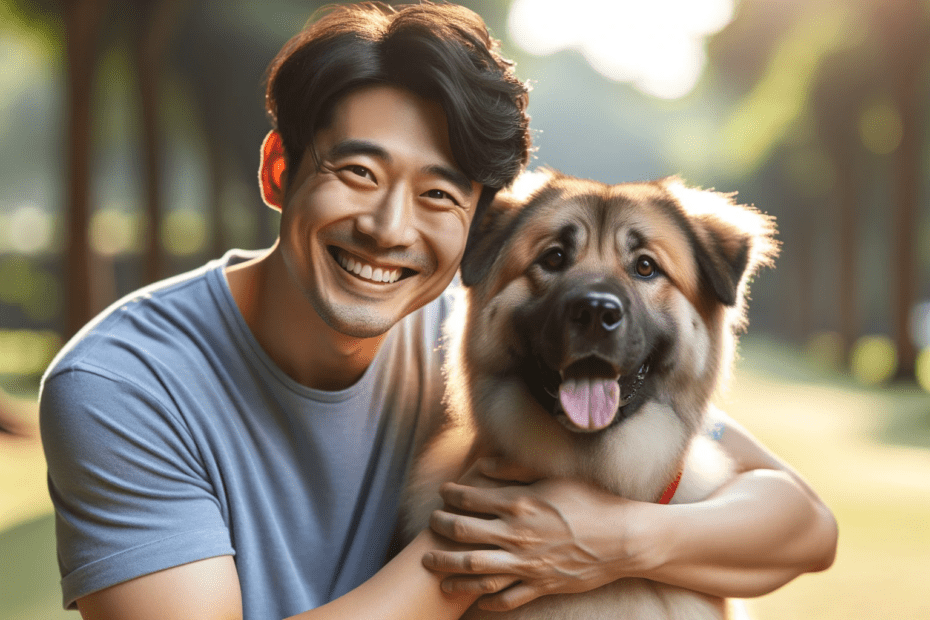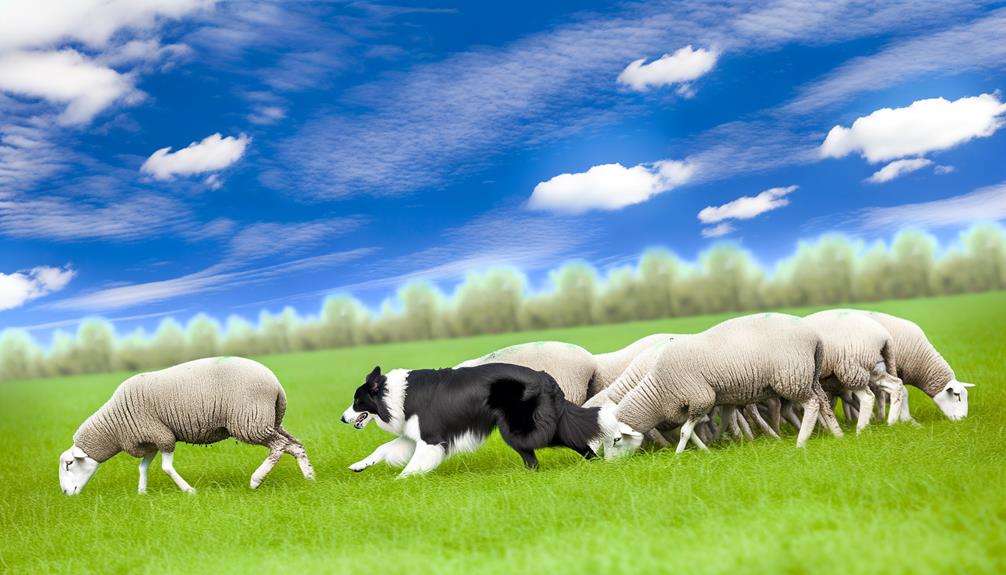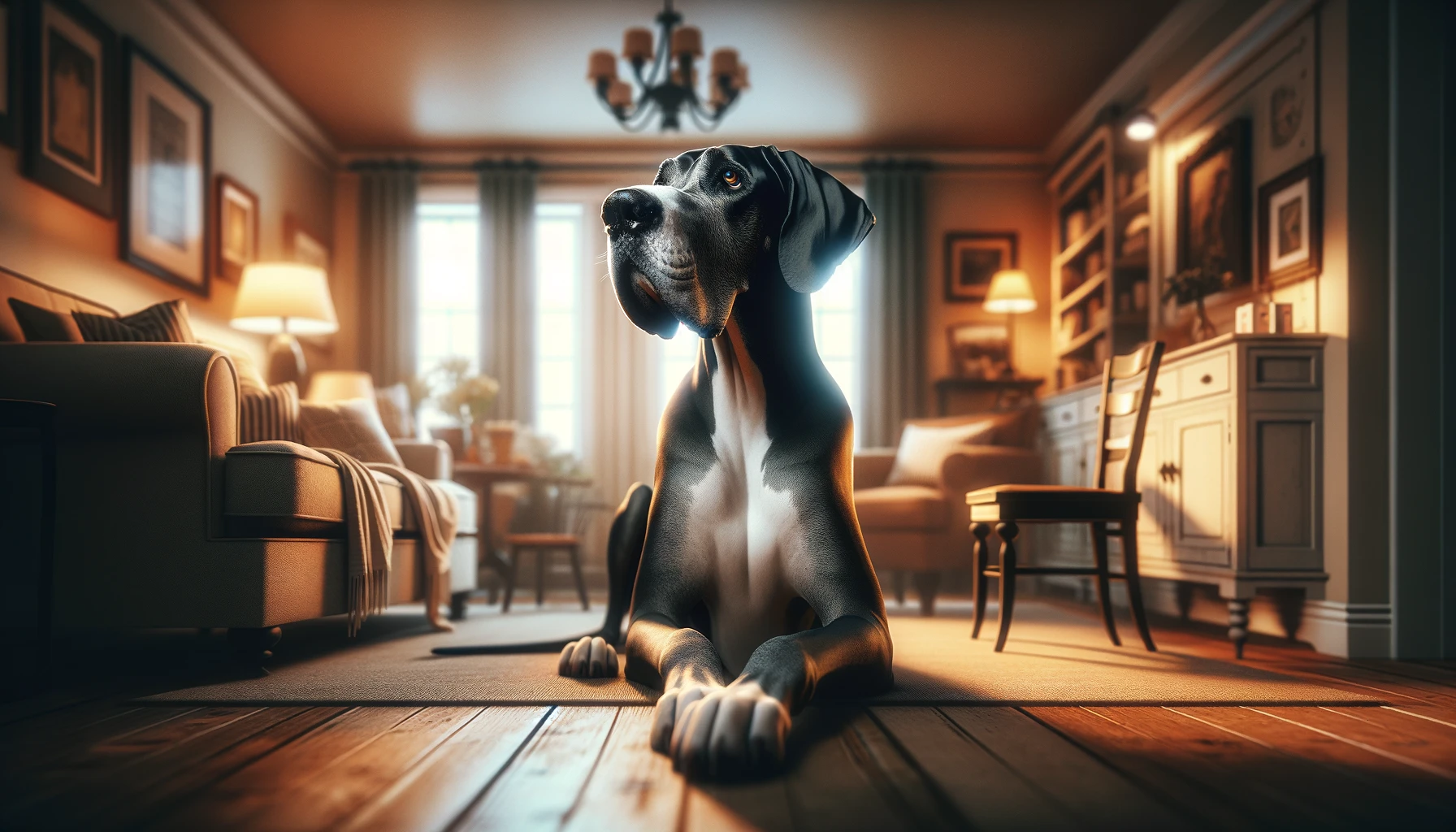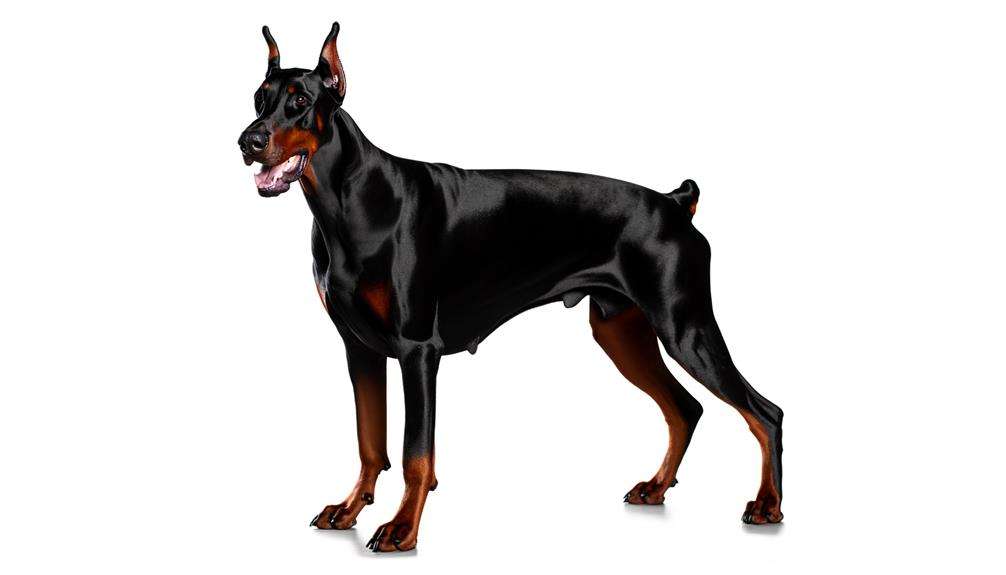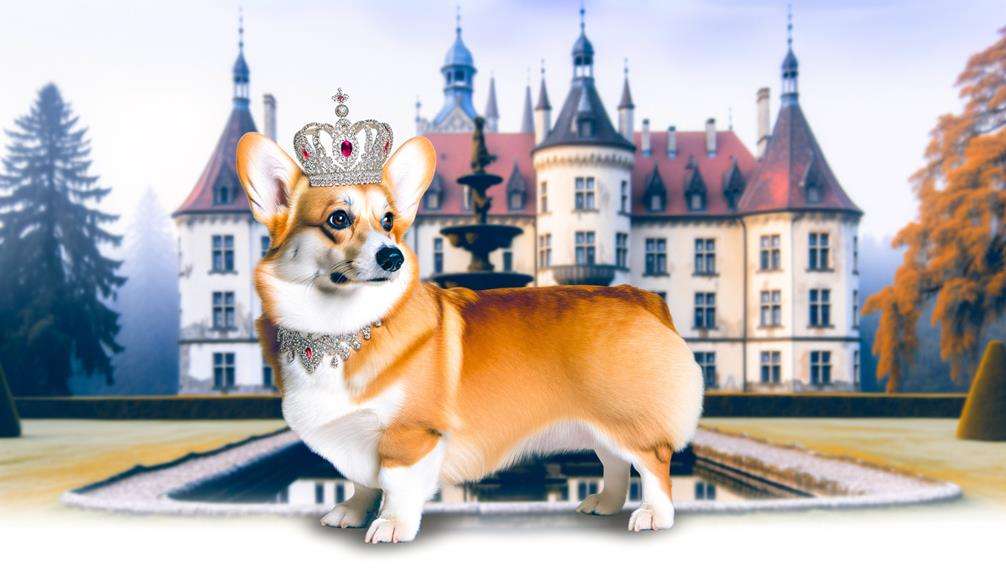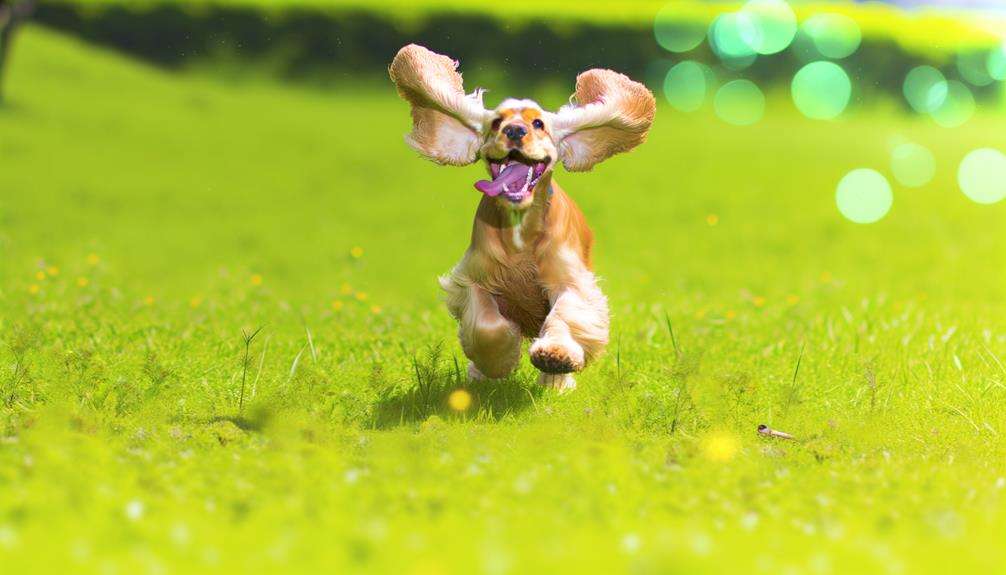Looking for the best large dog breeds for first-time owners? Look no further!
You'll love the Labrador Retriever, Golden Retriever, German Shepherd, Boxer, Bulldog, Bernese Mountain Dog, Great Dane, and Newfoundland.
These breeds are known for their friendly and gentle nature, making them perfect companions for beginners.
With their active personalities and lovable charm, they'll quickly become your new best friend.
Get ready for a lifetime of joy and unforgettable memories with these fantastic dogs.
Key Takeaways
- Labrador Retriever and Golden Retriever are ideal large dog breeds for first-time owners due to their friendly and gentle nature, playfulness, and easy trainability.
- German Shepherds make great first-time pets as they are intelligent, trainable, and loyal, but they require proper training and socialization.
- Bulldogs are a good choice for first-time owners as they have a gentle and affectionate nature, minimal exercise requirements, and low grooming needs.
- Bernese Mountain Dogs and Great Danes can be suitable for first-time owners if they receive proper training, socialization, and consistent positive reinforcement. However, they may require more patience and effort due to their stubbornness and need for boundaries.
Labrador Retriever
When considering a large dog breed for a first-time owner, you can't go wrong with a Labrador Retriever. Labrador Retrievers are ideal family companions due to their friendly and gentle nature. They're known for their playful and patient temperament, making them great with children and other pets.
Labrador Retrievers also excel in obedience training and are quick learners, making them easy to train for first-time owners.
In terms of exercise and space requirements, Labrador Retrievers are active dogs that need regular physical activity to stay healthy and happy. Daily walks, playtime, and mental stimulation are essential for their well-being. They also require a decent amount of space to roam and explore, so a backyard or access to a nearby park is important.
It's worth noting that while Labrador Retrievers are considered a large breed, they aren't as large as other breeds like the Newfoundland. Labrador Retrievers typically weigh between 55-80 pounds, while Newfoundlands can weigh up to 150 pounds.
Golden Retriever
If you're considering a large dog breed for your first-time ownership, another excellent choice is the Golden Retriever. Known for their friendly and gentle nature, Golden Retrievers have a temperament that makes them well-suited for families and first-time owners. They aren't only intelligent but also eager to please, which makes training them a breeze.
Golden Retrievers are renowned for their loyalty and affection towards their families. They're patient and tolerant, making them great companions for children. Their friendly disposition also makes them excellent therapy and service dogs. Golden Retrievers have a natural instinct to retrieve, which can be traced back to their origins as hunting dogs. This trait makes them highly trainable and responsive to commands.
When it comes to training, consistency and positive reinforcement work best for Golden Retrievers. They respond well to praise, treats, and rewards, which helps to reinforce good behavior. Early socialization is crucial for them to develop into well-rounded dogs. By exposing them to different people, animals, and environments at a young age, you can help them become confident and well-behaved adult dogs.
German Shepherd
The German Shepherd is known for its intelligent and trainable nature, making it an excellent choice for first-time dog owners.
With proper socialization and training, German Shepherds can be well-behaved and obedient companions.
They're also known for their loyalty and protective instincts, making them an ideal family companion.
Shepherd's Temperament and Training
You'll find that training a German Shepherd is a rewarding experience due to their intelligent and obedient nature. These dogs are known for their exceptional ability to learn and follow commands, making them highly trainable.
German Shepherds are naturally inclined to be obedient, making them an ideal choice for obedience training. Their herding instincts also play a role in their trainability, as they're instinctively driven to follow and respond to a leader.
It's important to start training your German Shepherd at an early age to establish boundaries and reinforce good behavior. Consistency, positive reinforcement, and patience are key when training a German Shepherd, as they thrive on praise and rewards.
With proper training and socialization, German Shepherds can become well-behaved and obedient companions.
Ideal Family Companion?
A German Shepherd can make an ideal family companion due to their loyal and protective nature. Here are some reasons why they're a great choice for families:
- Loyal and Protective: German Shepherds are known for their unwavering loyalty and protective instincts, making them excellent guardians for your family.
- Intelligent and Trainable: These dogs are highly intelligent and can be easily trained, making them great companions for first-time owners.
- Active and Energetic: German Shepherds have high exercise needs and require regular physical activity, which can be a great motivation for families to stay active.
- Versatile Working Dogs: They excel in various activities such as obedience, agility, and search and rescue, making them a versatile addition to any family.
- Low Grooming Requirements: While German Shepherds have a thick double coat, their grooming needs are relatively low compared to other breeds, making them easier to maintain.
Boxer
One of the best large dog breeds for first-time owners is the Boxer, thanks to their friendly and energetic nature. Boxers are known for their playful and outgoing personalities, making them a great choice for families.
In terms of health and exercise needs, Boxers require regular physical activity to keep them happy and healthy. They've a high energy level and need daily exercise such as walks, runs, or playtime in a secure area. Boxers are also prone to certain health issues, including hip dysplasia and heart conditions, so regular veterinary check-ups are essential.
In addition to their exercise needs, Boxers also require proper socialization to ensure they become well-rounded adult dogs. Early socialization is crucial to help them develop good manners and prevent behavioral problems. Exposing them to different people, animals, and environments from a young age will help them become confident and friendly companions.
Boxers are known for their loyalty and love for their families, making them excellent family pets. They're also protective and make good watchdogs. However, due to their size and strength, proper training and handling are essential to ensure they're well-behaved and obedient. Boxers thrive with positive reinforcement training methods and enjoy learning new tricks and commands.
Bulldog
Moving on to the Bulldog, this breed is another excellent choice for first-time owners of large dogs due to their gentle and affectionate nature. Bulldogs make ideal family pets because of their friendly and patient temperament. Here are some reasons why Bulldogs are a great addition to any family:
- Loyal Companions: Bulldogs are known for their loyalty and devotion to their owners. They'll always be by your side, offering love and companionship.
- Easygoing Nature: Bulldogs have a laid-back and easygoing nature, making them great for families with children. They're patient and tolerant, even with rough play.
- Minimal Exercise Requirements: Bulldogs aren't high-energy dogs and don't require extensive exercise. A daily walk and some playtime in the backyard are usually enough to keep them happy.
- Low Grooming Needs: Bulldogs have a short coat that requires minimal grooming. Regular brushing and occasional baths are sufficient.
- Health Concerns: While Bulldogs are generally healthy, they do have some health concerns that owners should be aware of. These include respiratory issues, joint problems, and skin allergies. Regular veterinary check-ups and a balanced diet can help prevent and manage these health issues.
Bernese Mountain Dog
Now let's explore why the Bernese Mountain Dog is another excellent choice for first-time owners of large dogs.
The Bernese Mountain Dog, also known as the Berner, is an ideal family companion due to its gentle and friendly temperament. This breed is known for being patient and tolerant, making them great with children and other pets. With its size, the Bernese Mountain Dog is a striking presence, standing between 23 and 28 inches tall and weighing between 80 and 115 pounds. Despite their large size, they're surprisingly calm and well-mannered.
Training and socialization are crucial for Bernese Mountain Dogs to ensure they grow up to be well-behaved adults. Starting early is key, as they can be stubborn at times. Consistent and positive reinforcement methods work best with this breed.
When it comes to exercise, the Bernese Mountain Dog is moderate in its needs. They enjoy daily walks and playtime in a securely fenced yard. Although they thrive in colder climates due to their thick double coat, they can adapt to various weather conditions.
Great Dane
When considering the best large dog breeds for first-time owners, the Great Dane is a breed worth considering.
Known for their gentle and friendly temperament, Great Danes can be a great addition to any family.
However, it's important to note that they require proper training and socialization as well as ample exercise and space due to their size.
Temperament and Size
As a first-time owner, you'll appreciate the gentle and affectionate nature of the Great Dane, making it one of the best large dog breeds for you. The Great Dane has a temperament that's ideal for families, as they're known to be patient and friendly towards children.
Here are some key points about the temperament and size of the Great Dane:
- Great Danes are known for their calm and patient demeanor, making them excellent family companions.
- Despite their large size, Great Danes are gentle and loving towards their owners.
- They're highly trainable and eager to please, making them suitable for first-time owners who are willing to invest time in training.
- Great Danes have a moderate energy level and require regular exercise to keep them happy and healthy.
- Due to their size, Great Danes need ample space to move around comfortably, so a large living space is recommended.
Training and Socialization
To properly train and socialize your Great Dane, you'll need to establish clear boundaries and provide consistent guidance. Great Danes are intelligent and eager to please, making them relatively easy to train. Positive reinforcement methods work best, using treats and praise to reward good behavior. Avoid using harsh training techniques or punishment, as this can lead to fear and aggression in these sensitive dogs.
Start training early and be patient, as Great Danes can be slow to mature mentally. Socialization is also crucial for a well-rounded Great Dane. Expose them to different people, animals, and environments from a young age. Gradually introduce them to new experiences, using positive reinforcement to create positive associations.
With proper training and socialization, your Great Dane will become a well-behaved and confident companion.
Exercise and Space Requirements
To properly meet the exercise and space requirements of a Great Dane, you'll need to provide ample room for them to run and play. Great Danes are large and energetic dogs that require regular exercise to stay healthy and happy. Here are some important considerations for their exercise and space needs:
- Fenced yard: A secure, fenced yard will allow your Great Dane to have the freedom to run and play without the risk of escaping.
- Daily walks: Regular walks are essential for providing mental and physical stimulation for your Great Dane.
- Doggy playdates: Great Danes are social animals and enjoy the company of other dogs. Taking them to a dog park or arranging playdates with other friendly dogs can be a great way to meet their exercise and socialization needs.
- Apartment living: While Great Danes are large dogs, they can adapt to apartment living as long as they have access to regular exercise outside of the apartment.
- Indoor play: Great Danes can also benefit from indoor play, such as playing fetch or engaging in interactive toys, especially on days when outdoor activities are limited.
Newfoundland
When considering a large dog breed as a first-time owner, the loyalty and gentle nature of a Newfoundland make it an ideal choice. Newfoundland dogs are known for their calm and patient temperament, making them excellent companions for families and individuals alike.
One important aspect to consider when owning a Newfoundland is their grooming needs. Their thick, water-resistant coat requires regular brushing to prevent matting and to keep it clean. Additionally, they're prone to shedding, so regular grooming sessions will help to minimize the amount of loose hair in your home. It's also important to pay attention to their ears, as they can be prone to infections. Regular cleaning and inspection will help to prevent any issues.
In terms of health concerns, Newfoundland dogs are generally a healthy breed. However, they're prone to certain conditions such as hip and elbow dysplasia, which can lead to joint problems. Regular exercise and maintaining a healthy weight can help to minimize the risk of these conditions. Additionally, they may be prone to certain heart conditions, so it's important to monitor their heart health and have regular check-ups with a veterinarian.
Frequently Asked Questions
Are Large Dog Breeds Suitable for Apartment Living?
Large dog breeds in small spaces can present challenges for apartment living. They require ample exercise and space to roam. However, with proper training and a dedicated owner, it is possible to have a large dog breed in an apartment.
How Much Exercise Do These Large Dog Breeds Require?
Large dog breeds like these require regular exercise to stay happy and healthy. They have high energy levels and need daily walks, playtime, and mental stimulation. Training needs are also important for their development and wellbeing.
Are These Large Dog Breeds Good With Children and Other Pets?
Large dog breeds, like labradors and golden retrievers, are known for their friendly and gentle temperament towards children and other pets. They are also highly trainable, making them a great choice for first-time owners.
How Much Grooming Is Required for These Large Dog Breeds?
Large dog breeds require regular grooming to keep their coats healthy and clean. Brushing their fur with appropriate grooming tools is essential to prevent matting and maintain their overall appearance.
What Are the Common Health Issues Faced by These Large Dog Breeds?
Large dog breeds commonly face health issues such as hip dysplasia, bloat, and heart disease. To keep your furry friend healthy, regular exercise, a balanced diet, and routine vet check-ups are essential.
Conclusion
In conclusion, these large dog breeds mentioned – Labrador Retriever, Golden Retriever, German Shepherd, Boxer, Bulldog, Bernese Mountain Dog, Great Dane, and Newfoundland – are excellent choices for first-time owners.
These breeds possess a friendly and gentle nature, making them ideal companions for families and individuals. Additionally, they're known for their loyalty, intelligence, and adaptability, making them easier to train and integrate into a new home.
Overall, these breeds offer a rewarding and fulfilling experience for first-time dog owners.
